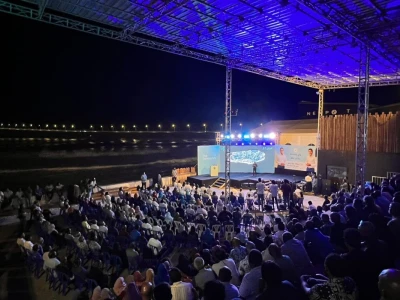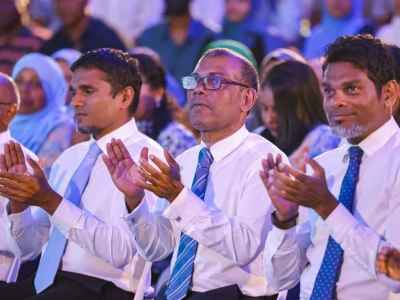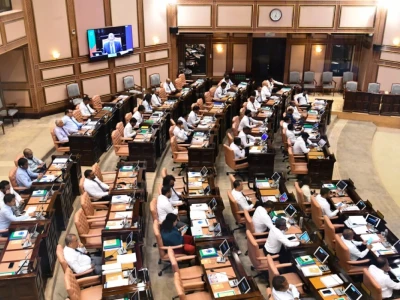
Democrats' decentralisation policy: urban centres across Maldives
The decentralization system in Maldives is not yet complete and major changes are needed, Ilyas said.
The Democrats on Tuesday launched its decentralisation policy to develop urban centres in various parts of the country and reduce congestion in Male.
Designed to guarantee individual islands their jurisdiction and give atolls the ownership of their natural resources, The Democrats have launched activities around the country.
The Democrats' sole candidate for the presidential primary, Hulhudhoo MP Ilyas Labeeb, held a rally in HDh. Kulhudhuffushi party camp to launch the policy.
Providing information with the help of a presentation, Ilyas first highlighted the current situation in Maldives and the main issues in the decentralization system. He pointed out that:
-
Lack of long-term national development goals or plans
-
Resources and services are centralized in the city, the population is crowded and creates an environment that is not suitable for living
-
Natural resources and wildlife are not protected and left to dissipate without determining the jurisdiction of the atoll
-
For centralized development, the natural resources of other regions are extracted without any benefit to them
-
The opportunity to raise funds for development programs is closed to councils
-
Lack of adequate budget to provide services required by law
-
Utility and communication companies take a lot of land from the islands and the island does not benefit enough
-
Lack of relationship between councils and their administrative staff and difficulty in fulfilling responsibilities
-
Slow work of councils, weak management and difficulties in accessing services
-
The influence of non-residents increase and there is no space for permanent residents to speak
Therefore, the decentralization system in Maldives is not yet complete and major changes are needed, he said.
Some of the things The Democrats have proposed to do under the policy based on the information received from meetings with councillors, workshops and consultation sessions in the parliament are:
-
Formulate a long-term vision of national development with the help of councils and protect them by law
-
Establishment of urban centers in various areas and facilitation of structural development
-
Disbursing of the concentrated population in Male by diverting works and jobs to urban centres
-
Introduce a settlement allowance and housing program to encourage migration out of Male
-
Constitutional regulation of islands and provincial jurisdiction to ensure ownership of natural resources
-
Facilitate borrowing powers for councils to raise sovereign debt up to 60% of island GDP
-
Green tax collected from islands to the island's green fund
-
Increase land rent portion paid to councils from resort and industrial islands to 50%
-
50% of the GST revenue received from businesses in a island
-
Establish open access networks, digitize councils' operations and services and transform them into an open governance system
-
Establish a system to make the revenues and expenditures of the council public in a timely manner
-
Establish a local corruption index by which councils can be measured
-
Amend the voting system for a permanent resident island council by providing for a recall vote to remove a term-elected councillor
-
Establishment of standing committees to advise councils
Along with the 'decentralization' change as well as proposed changes to the parliamentary system, The Democrats also launched their parliament policy on Tuesday night.
The Democrats have already launched their business policy.
Activities have been held around the country to launch the policy, along with solutions proposed by Democrats that are supposed to facilitate self-employment. The main event was the party's founder Nasheed's participation in the B. Thulhaadhoo.




